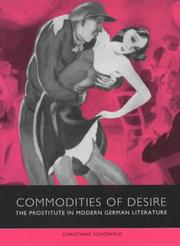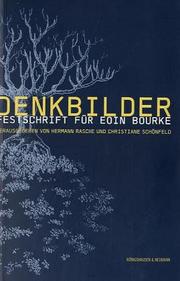| Listing 1 - 6 of 6 |
Sort by
|

ISBN: 1571131981 Year: 2000 Publisher: Rochester Camden House
Abstract | Keywords | Export | Availability | Bookmark
 Loading...
Loading...Choose an application
- Reference Manager
- EndNote
- RefWorks (Direct export to RefWorks)
82.04 --- 830 "18/19" --- German literature --- -German literature --- -Prostitutes in literature. --- Prostitution in literature --- Literaire thema's --- Duitse literatuur--Hedendaagse Tijd --- History and criticism --- Prostitutes in literature. --- History and criticism. --- 830 "18/19" Duitse literatuur--Hedendaagse Tijd --- 82.04 Literaire thema's --- Prostitutes in literature --- Young Germany
Book
ISBN: 9781628923766 1628923768 1501399578 9781501399572 9781628923759 9781628923742 9781501396564 1628923741 Year: 2023 Publisher: New York, N.Y. Bloomsbury Academic
Abstract | Keywords | Export | Availability | Bookmark
 Loading...
Loading...Choose an application
- Reference Manager
- EndNote
- RefWorks (Direct export to RefWorks)
This book tells the story of German-language literature on film, beginning with pioneering motion picture adaptations of Faust in 1897 and early debates focused on high art as mass culture. It explores, analyzes and contextualizes the so-called 'golden age' of silent cinema in the 1920s, the impact of sound on adaptation practices, the abuse of literary heritage by Nazi filmmakers, and traces the role of German-language literature in exile and postwar films, across ideological boundaries in divided Germany, in New German Cinema, and in remakes and movies for cinema as well as television and streaming services in the 21st century. Having provided the narrative core to thousands of films since the late 19th century, many of German cinema's most influential masterpieces were inspired by canonical texts, popular plays, and even children's literature. Not being restricted to German adaptations, however, this book also traces the role of literature originally written in German in international film productions, which sheds light on the interrelation between cinema and key historical events. It outlines how processes of adaptation are shaped by global catastrophes and the emergence of nations, by materialist conditions, liberal economies and capitalist imperatives, political agendas, the mobility of individuals, and sometimes by the desire to create reflective surfaces and, perhaps, even art. Commercial cinema's adaptation practices have foregrounded economic interest, but numerous filmmakers throughout cinema history have turned to German-language literature not simply to entertain, but as a creative contribution to the public sphere, marking adaptation practice, at least potentially, as a form of active citizenship.
German literature --- Motion pictures and literature. --- Film adaptations. --- Motion pictures --- Motion pictures. --- History. --- Motion pictures and literature --- Film adaptations --- Film --- Film criticism

ISBN: 3826026500 Year: 2004 Publisher: Wurzburg : Königshausen & Neumann,
Abstract | Keywords | Export | Availability | Bookmark
 Loading...
Loading...Choose an application
- Reference Manager
- EndNote
- RefWorks (Direct export to RefWorks)
German literature --- History and criticism. --- Bourke, Eoin.
Book
ISBN: 9781571137876 9781571134981 1571134980 1306902290 1571137874 Year: 2013 Publisher: Rochester, N.Y. : Camden House,
Abstract | Keywords | Export | Availability | Bookmark
 Loading...
Loading...Choose an application
- Reference Manager
- EndNote
- RefWorks (Direct export to RefWorks)
In the aftermath of the Second World War, both the allied occupying powers and the nascent German authorities sought Germans whose record during the war and the Nazi period could serve as a counterpoint to the notion of Germans as evil. That search has never really stopped. In the past few years, we have witnessed a burgeoning of cultural representations of this "other" kind of Third Reich citizen - the "good German" - as opposed to the committed Nazi or genocidal maniac. Such representations have highlighted individuals' choices in favor of dissenting behavior, moral truth, or at the very least civil disobedience. The "good German's" counterhegemonic practice cannot negate or contradict the barbaric reality of Hitler's Germany, but reflects a value system based on humanity and an "other" ideal community. This volume of new essays explores postwar and recent representations of "good Germans" during the Third Reich, analyzing the logic of moral behavior, cultural and moral relativism, and social conformity found in them. It thus draws together discussions of the function and reception of "Good Germans" in Germany and abroad. Contributors: Eoin Bourke, Manuel Bragança, Maeve Cooke, Kevin De Ornellas, Sabine Egger, Joachim Fischer, Coman Hamilton, Jon Hughes, Karina von Lindeiner-Strásky, Alexandra Ludewig, Pól O Dochartaigh, Christiane Schönfeld, Matthias Uecker. Pól O Dochartaigh is Professor of German and Dean of the Faculty of Arts at the University of Ulster, Northern Ireland. Christiane Schönfeld is Senior Lecturer in German and Head of the Department of German Studies at Mary Immaculate College, University of Limerick.
Literature and morals --- German literature --- Germans in literature. --- Germans in motion pictures. --- Identity (Psychology) --- Littérature et morale --- Identité (psychologie) --- History and criticism. --- Histoire et critique. --- Dans la littérature. --- Germany --- Civilization --- Philosophy. --- Personal identity --- Personality --- Self --- Ego (Psychology) --- Individuality --- Motion pictures --- Literature --- Morals and literature --- Ethics --- Influence --- Moral and ethical aspects --- Alemania --- Ashkenaz --- BRD --- Bu̇gd Naĭramdakh German Uls --- Bundesrepublik Deutschland --- Deguo --- 德国 --- Deutsches Reich --- Deutschland --- Doitsu --- Doitsu Renpō Kyōwakoku --- Federal Republic of Germany --- Federalʹna Respublika Nimechchyny --- FRN --- Gėrman --- German Uls --- Герман Улс --- Germania --- Germanii︠a︡ --- Germanyah --- Gjermani --- Grossdeutsches Reich --- Jirmānīya --- KhBNGU --- Kholboony Bu̇gd Naĭramdakh German Uls --- Nimechchyna --- Repoblika Federalin'i Alemana --- República de Alemania --- República Federal de Alemania --- Republika Federal Alemmana --- Vācijā --- Veĭmarskai︠a︡ Respublika --- Weimar Republic --- Weimarer Republik --- ХБНГУ --- Германия --- جرمانيا --- ドイツ --- ドイツ連邦共和国 --- ドイツ レンポウ キョウワコク --- Germany (East) --- Germany (Territory under Allied occupation, 1945-1955) --- Germany (Territory under Allied occupation, 1945-1955 : British Zone) --- Germany (Territory under Allied occupation, 1945-1955 : French Zone) --- Germany (Territory under Allied occupation, 1945-1955 : Russian Zone) --- Germany (Territory under Allied occupation, 1945-1955 : U.S. Zone) --- Germany (West) --- Holy Roman Empire --- Culture. --- Germany. --- Literature. --- Moral Ambiguity. --- Nazi Period. --- Second World War.
Digital
ISBN: 9781571137876 Year: 2013 Publisher: Rochester, NY Camden House
Abstract | Keywords | Export | Availability | Bookmark
 Loading...
Loading...Choose an application
- Reference Manager
- EndNote
- RefWorks (Direct export to RefWorks)
In the aftermath of the Second World War, both the allied occupying powers and the nascent German authorities sought Germans whose record during the war and the Nazi period could serve as a counterpoint to the notion of Germans as evil. That search has never really stopped. In the past few years, we have witnessed a burgeoning of cultural representations of this "other" kind of Third Reich citizen - the "good German" - as opposed to the committed Nazi or genocidal maniac. Such representations have highlighted individuals' choices in favor of dissenting behavior, moral truth, or at the very least civil disobedience. The "good German's" counterhegemonic practice cannot negate or contradict the barbaric reality of Hitler's Germany, but reflects a value system based on humanity and an "other" ideal community. This volume of new essays explores postwar and recent representations of "good Germans" during the Third Reich, analyzing the logic of moral behavior, cultural and moral relativism, and social conformity found in them. It thus draws together discussions of the function and reception of "Good Germans" in Germany and abroad.
Multi

ISBN: 9781782381549 Year: 2015 Publisher: New York; ; Oxford Berghahn Books
Abstract | Keywords | Export | Availability | Bookmark
 Loading...
Loading...Choose an application
- Reference Manager
- EndNote
- RefWorks (Direct export to RefWorks)
| Listing 1 - 6 of 6 |
Sort by
|

 Search
Search Feedback
Feedback About UniCat
About UniCat  Help
Help News
News